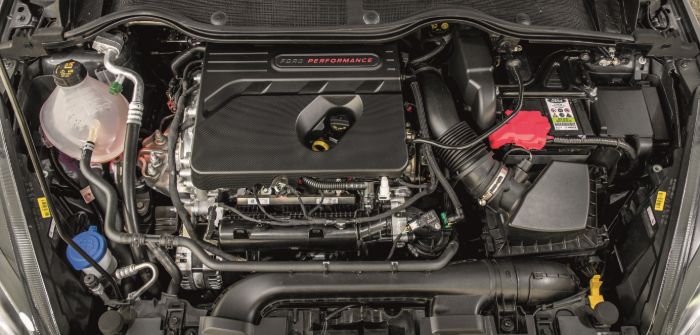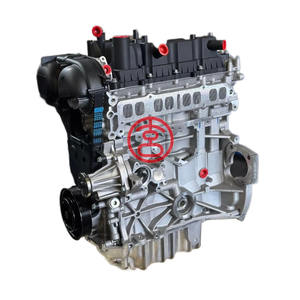Opening the Power of Engines: A Comprehensive Overview to Efficiency and Performance
Comprehending the detailed auto mechanics of engines is essential for both performance fanatics and daily vehicle drivers. The answers might redefine our method to engine efficiency and efficiency in means that are both enlightening and essential.
Comprehending Engine Essentials
What constitutes the basic mechanics of an engine? At its core, an engine is an equipment created to convert fuel right into mechanical energy with a collection of regulated surges or burning processes.
The crankshaft then changes this direct movement right into rotational energy, which inevitably powers the lorry. The camshaft regulates the opening and closing of the valves, controling the consumption of air and gas and the expulsion of exhaust gases. Furthermore, the engine depends on a carefully adjusted fuel-air mixture, ignition system, and cooling down system to make certain ideal efficiency and efficiency.
Comprehending engine basics also includes recognizing the value of engine cycles, such as the four-stroke cycle, that includes intake, compression, exhaust, and power strokes. Each phase is essential in guaranteeing the engine works smoothly and successfully. Mastery of these fundamental technicians lays the groundwork for checking out much more complex engine dynamics and performance metrics, important for optimizing both power output and performance.
Key Performance Metrics
Trick efficiency metrics are essential for reviewing an engine's efficiency and power output, supplying beneficial understandings for both consumers and manufacturers. These metrics function as benchmarks for engine performance, enabling notified choices in layout, manufacturing, and purchasing.
Among the key metrics is horsepower, which quantifies the engine's ability to perform job over time. Torque, measured in pound-feet, is one more essential metric that shows the engine's rotational force, straight affecting acceleration and lugging capability. Fuel performance, normally measured in miles per gallon (MPG) or litres per 100 kilometers (L/100km), evaluates how successfully the engine transforms gas right into activity, impacting environmental factors to consider and operational expenses.
Additionally, thermal efficiency procedures just how well an engine converts fuel power into valuable work, disclosing insights right into power losses primarily with warm. Exhaust degrees, consisting of carbon dioxide and NOx, are likewise essential, showing the engine's ecological impact and compliance with regulative standards.

Tuning Strategies for Efficiency
Tuning strategies play a considerable duty in enhancing engine efficiency by optimizing efficiency metrics identified in earlier discussions (ford fiesta engine). Various techniques exist to adjust an engine, each contributing to improved fuel content economic climate and decreased exhausts
One reliable technique is changing the air-fuel proportion, guaranteeing the engine runs within the optimum burning regime. A leaner mix can boost fuel efficiency, yet it should be stabilized to avoid misfires or engine knock. Additionally, reprogramming the engine management system can recalibrate criteria such as ignition timing, which additionally boosts effectiveness while maintaining power result.
An additional essential technique entails changing the intake and exhaust systems. Upgrading to high-performance air filters and exhaust headers can minimize back stress, promoting far better airflow. This permits the engine to breathe more freely, leading to boosted burning performance.
In addition, redirected here the execution of advanced adjusting tools, like dyno screening, gives specific information that makes it possible for targeted modifications. Regularly checking these efficiency metrics makes certain that adjusting efforts generate the desired effectiveness outcomes. Jointly, these techniques not only boost engine efficiency yet additionally contribute to long-term sustainability in engine operations.
Maintenance for Optimum Efficiency
Normal engine maintenance is necessary for accomplishing optimal performance and durability. A well-kept engine not just runs efficiently yet additionally decreases the danger of pricey repair work and malfunctions. Trick parts requiring regular focus include oil, filters, belts, and stimulate plugs.
Changing the engine oil at advised periods is crucial, as oil lubes moving parts and avoids overheating. Similarly, replacing oil and air filters guarantees that impurities do not harm engine feature. Neglecting these parts can result in decreased efficiency and potential engine damages.
Furthermore, checking and changing worn belts and pipes is important to stop sudden failings. Timing belts, specifically, need to be replaced according to the supplier's timetable to prevent disastrous engine damage.
Glow plugs ought to also be inspected and replaced as essential, since they play an essential role in ignition and fuel performance.
Future Fads in Engine Technology
Welcoming innovations in innovation, the future of engine style is poised to reinvent performance and efficiency across various applications. Hybrid and fully electric powertrains are becoming significantly traditional, providing reduced exhausts and enhanced fuel performance.
Additionally, technologies in materials science are leading to lighter, stronger components that enhance engine performance while reducing energy usage. Advanced manufacturing techniques, such as 3D printing, permit the development of complex Get the facts geometries that boost air movement and thermal administration, hence optimizing burning procedures.
Additionally, the combination of man-made knowledge and artificial intelligence is readied to transform engine diagnostics and efficiency tuning. These modern technologies can evaluate large quantities of information in real time, allowing predictive maintenance and customized efficiency enhancements.
Conclusion
In verdict, unlocking the power of engines calls for a comprehensive understanding of their technicians and efficiency metrics. Executing effective tuning strategies and sticking to regular upkeep techniques dramatically boost engine abilities.
In addition, the engine relies on a thoroughly calibrated fuel-air mixture, ignition system, and cooling down system to ensure optimal efficiency and effectiveness.
Recognizing engine fundamentals likewise entails acknowledging the value of engine cycles, such as the four-stroke cycle, which consists of consumption, power, exhaust, and compression strokes. Proficiency of these basic technicians lays the foundation for checking out extra complicated engine dynamics and efficiency metrics, important for optimizing both power outcome and efficiency.

Accepting innovations in modern technology, the future of engine layout is positioned to transform efficiency and efficiency throughout various applications.